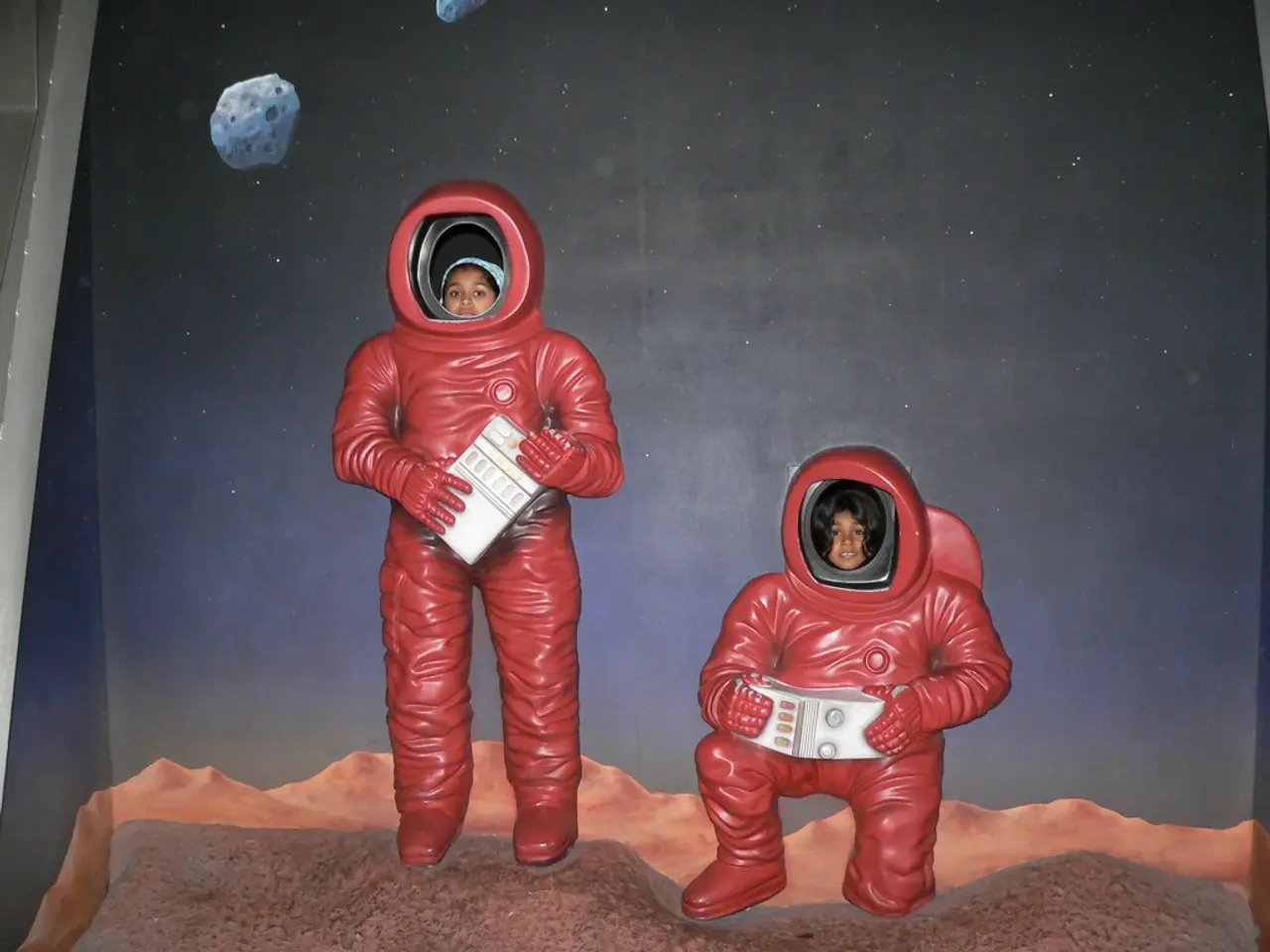Experiencing Pregnancy in Space: Exciting Prospect with Hidden Risks Unveiled
Space Pregnancy: A Journey Riddled with Challenges
Space travel has long been a fascinating frontier for humanity, but as we venture further into the cosmos, questions about the effects of space on human reproduction become increasingly important. A recent study delves into the potential risks posed by radiation in space and microgravity during pregnancy and fetal development.
Radiation in space poses serious risks to pregnancy and fetal development due to high-energy cosmic rays that penetrate space outside Earth’s atmosphere and magnetic field. These cosmic rays can damage DNA, harm rapidly dividing embryonic cells, and increase the likelihood of miscarriage or fatal developmental errors during early pregnancy stages when organs form. As pregnancy progresses past the first trimester, the fetus and uterus grow larger, becoming a bigger target for cosmic radiation. Radiation exposure at this stage can trigger uterine contractions, potentially causing premature labor, which is especially dangerous in space where medical care is limited.
Even if the cells survive radiation exposure, it can provoke inflammatory immune responses that harm tissue and disrupt organ function. The developing foetus grows in something like microgravity in the womb, floating in neutrally buoyant amniotic fluid. Prolonged exposure to cosmic rays after birth could cause permanent damage to a baby's brain, potentially affecting cognition, memory, behavior, and long-term health.
Microgravity, the near-weightlessness experienced during spaceflight, would make conception more physically awkward but would not significantly interfere with staying pregnant once the embryo has implanted. Pregnancy can be understood as a chain of biological milestones, each with a certain chance of success. About two thirds of human embryos do not live long enough to be born, with most losses happening in the first few weeks after fertilization.
The first month after fertilization is the most vulnerable time for the embryo's development. Cosmic rays are more likely to hit the uterine muscle in later stages, which could trigger contractions and potentially cause premature labor. Giving birth and caring for a newborn in zero gravity would be far more difficult due to floating fluids and people. A baby born in space would continue growing in microgravity, which could interfere with postural reflexes and coordination.
In space, the shielding from Earth's thick atmosphere and magnetic field disappears, leaving astronauts vulnerable to cosmic radiation. Advanced radiation shielding along with a better understanding of microgravity’s impact are essential before considering real-world attempts at reproduction in space. Neonatal intensive care has improved, but earlier births increase the risk of complications, particularly in space. Radiation can cause mutations that increase the risk of cancer.
In summary, space pregnancy remains highly experimental and risky due to these unresolved biological challenges. The study highlights the need for further research and development in radiation shielding and microgravity's impact on pregnancy and fetal development before we can safely consider the possibility of space-born children.
| Aspect | Effect of Space Radiation and Microgravity | |-----------------------------|-------------------------------------------------------------------| | Early pregnancy | DNA damage to embryonic cells, risk of miscarriage or fatal errors | | Later pregnancy | Increased radiation hits causing uterine contractions and preterm labor risk | | Microgravity post-birth | Impaired motor skill development due to lack of gravity cues | | Postnatal radiation effects | Brain damage affecting cognitive and behavioral functions |
- The study emphasizes the potential risks of radiation in space during pregnancy, as high-energy cosmic rays can cause DNA damage in rapidly dividing embryonic cells, increasing the likelihood of miscarriage or fatal developmental errors.
- As pregnancy progresses past the first trimester, cosmic radiation becomes more of a concern as the fetus and uterus grow larger, possibly triggering uterine contractions and leading to premature labor, a dangerous scenario in space where medical care is limited.
- Prolonged exposure to cosmic rays after birth can cause permanent damage to a baby's brain, potentially affecting cognition, memory, behavior, and long-term health.
- Research is needed to understand the impact of microgravity on pregnancy and fetal development, as well as to develop advanced radiation shielding, before we can consider the idea of space-born children safely.




